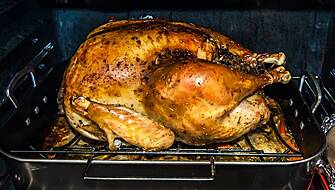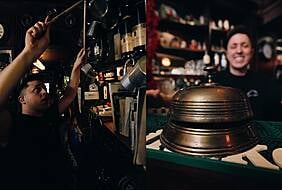Molly-Mae Hague and Tommy Fury celebrated the arrival of their baby this week – a daughter they’ve named Bambi.
The Love Island star, 23, posted a sweet snap on Instagram of baby Bambi in a crib in a very plush off-white nursery, with a cuddly stuffed version of her Disney character namesake tucked in the corner.
Hague and her partner, pro boxer Fury – one of the reality TV series’ most successful pairings, having found love after appearing on the show together in 2019 – aren’t the first celebs to choose a more unusual or unique name for their child.
Of course, there’s Beyonce and Jay Z’s daughter Blue Ivy. Ed Sheeran and Cherry Seaborn plumped for Lyra Antarctica for their firstborn, with their second baby getting the planetary moniker of Jupiter. There’s Raddix (Cameron Diaz’s daughter), Cosmo (Scarlett Johansson’s son) and Bear Blu (Alicia Silverstone’s daughter).
Name trends are nothing new and the shift away from traditional names in favour of something more original has been reflected in the general population too – often influenced by pop culture. For example, Luca (from the 2021 Pixar film) made it to the 2022 top 10 most popular baby names for boys.
But, what role does a name really play in our lives? Does it make a difference if we give kids more unusual names, and does it shape their identity?
A loving environment is most important
“It is important to think carefully about the name and [parents] may spend lots of time finding something meaningful,” says clinical psychologist and child development expert Dr Claire Halsey, who works with Triple P Positive Parenting Program (triplep.uk.net).
“But it isn’t actually about the name – except in exceptional circumstances, where there is a really unusual name. The most important thing is actually the family environment – it’s more important to focus on the parent-child bond.
“Loving nicknames may be more significant – some may be embarrassing and make a child feel insecure,” she adds.

Dr Seb Thompson, consultant clinical psychologist at Cygnet Health Care (cygnethealth.co.uk), agrees there are more crucial factors when it comes to developing a child’s sense of self.
“I think names matter to some extent, because it is how that person will ultimately identify, but what probably matters a lot more to their sense of identity and wellbeing is if they are given a good environment to grow and flourish,” Thompson explains.
“Two people with the same names but different upbringings will turn out differently because it is about nurturing, no matter the name.”
Developing a stable sense of self
We can’t deny names can sometimes come with certain implications, however. But this isn’t necessarily the same for everyone – and it’s something that can be influenced by other things.
Thompson says: “How people know you and how you refer to yourself will come with positive and negative associations. Even if you meet someone where the associations are negative, there is a chance to reform that.
“It’s about creating a core, stable sense of self,” he adds. “Helping a child to form a solid sense of self is vital for parents, because they are the main attachment figure.”
Do names make us stand out or blend in?

One thing that crops up when parents choose very unusual names, or names where there is an obvious association with a particular character or ‘negative’ figure, is the question of whether it causes problems for them further down the line.
“My children are called Noah and Oscar – names we would be comfortable using, names that had positive associations,” says Thompson. “Fundamentally for me, we didn’t want a name that was going to single a child out.”
Not everybody has the same view, however. “Negative connotations to a name may lead to your child being teased, but actually may allow parents to encourage their child to be more robust and manage that, helping them feel more secure,” says Halsey.
Because of name trends, it’s often the case that there’ll be multiple children with the same name in school classrooms. This doesn’t need to be a big deal, though.
“Having a really common name – say there are five Jakes in a class – may cause a bit of confusion, but actually, they may end up being a group of Jakes, which can be quite nice for feeling together,” says Halsey.
Chosen with love

“We do see meaning in names affecting us,” Halsey adds. “We know it has been chosen by our parents and has arrived with us in a loving and caring way. [They] may be connected to family, maybe a meaningful place, for example. But even if it isn’t, we fuse with the name we have, and it becomes significant.”
Plus, we can’t really predict how many other parents will have chosen the same name, or exactly how somebody’s name will be received. As Halsey says: “Parents do the very best they can and have chosen a name with love.”







